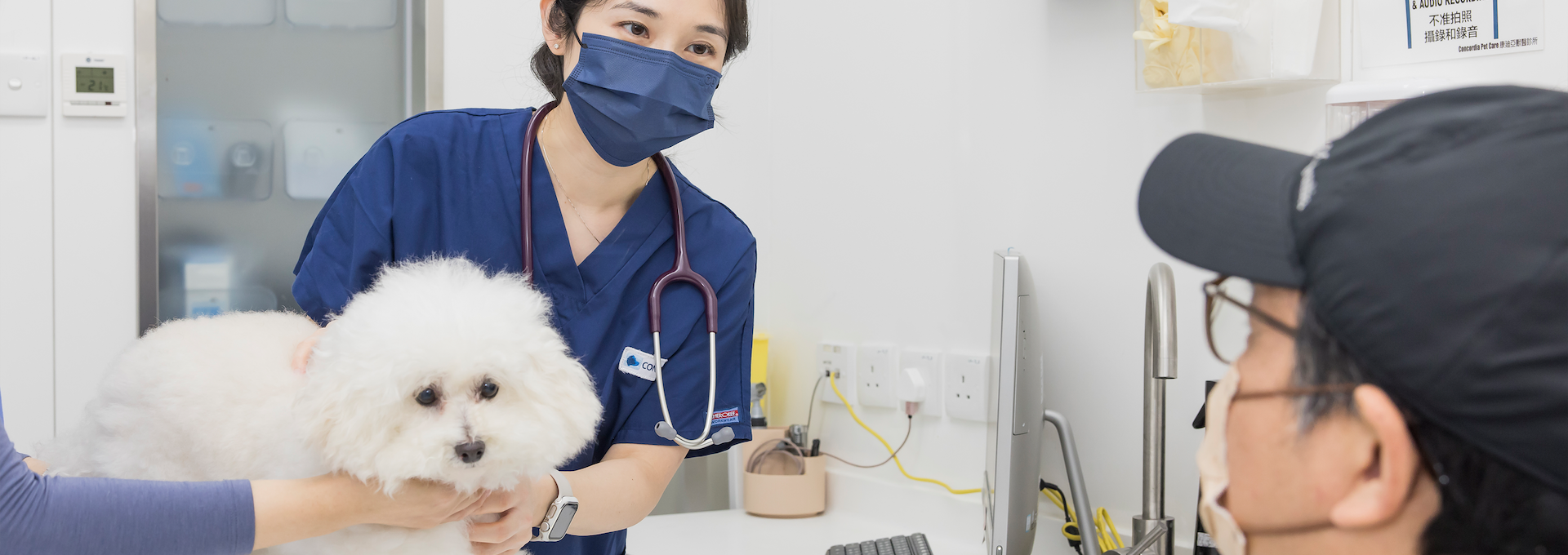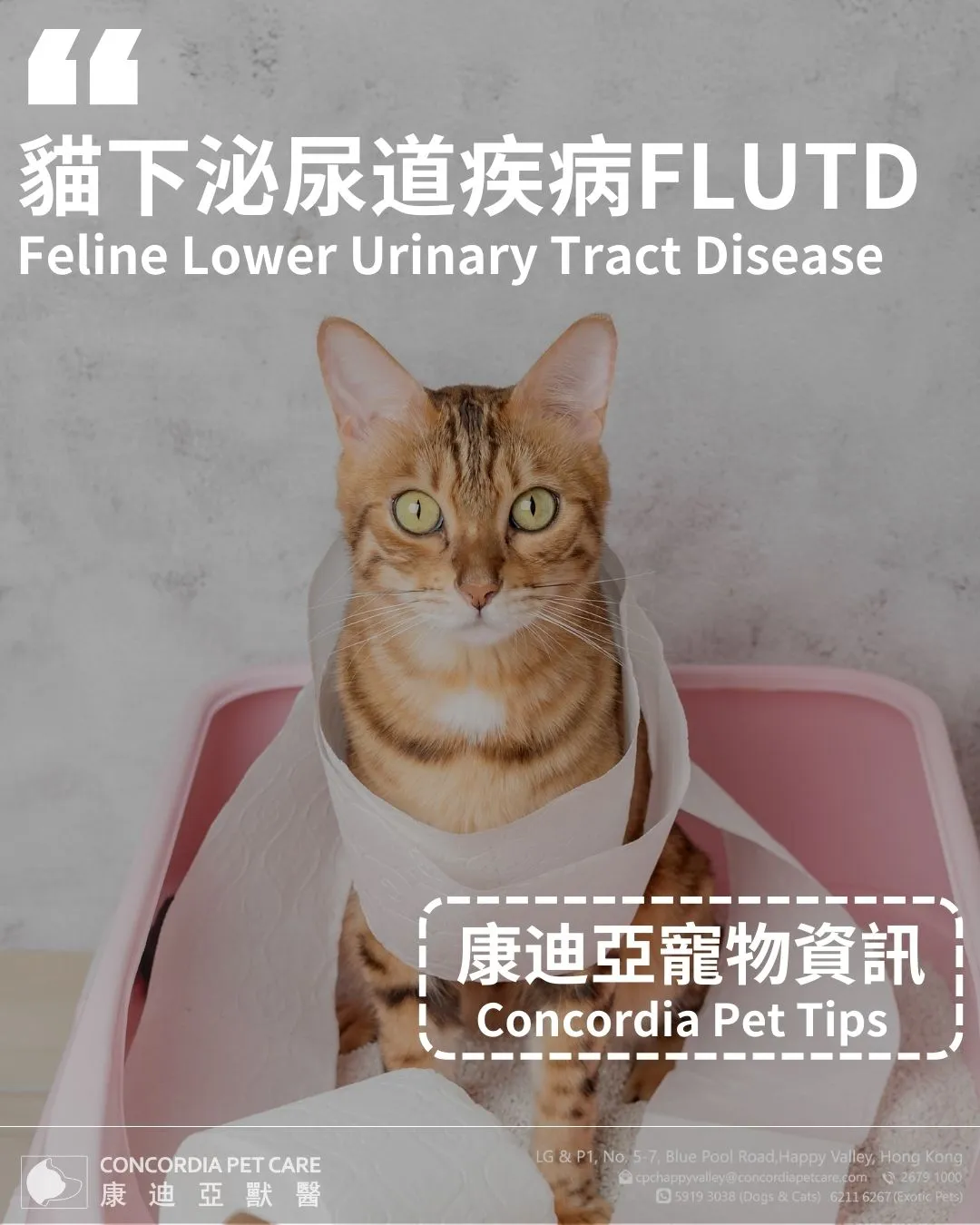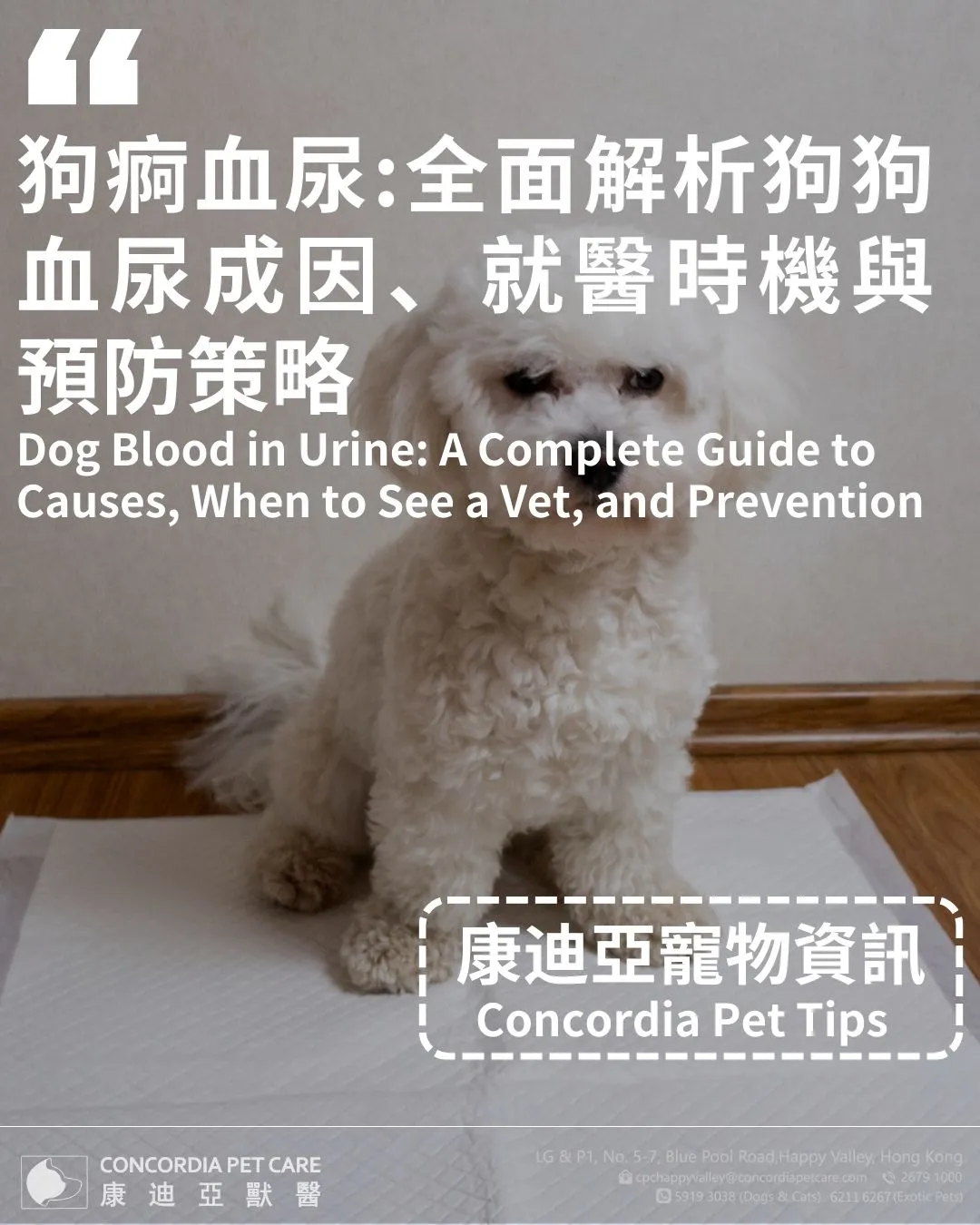
FLUTD (Feline Lower Urinary Tract Disease)
 康迪亞獸醫
康迪亞獸醫
 2025-09-03
2025-09-03


Understanding FLUTD
When it comes to our feline friends, few things are more distressing than seeing them in pain or discomfort, especially when it involves something as crucial as their ability to urinate. Feline Lower Urinary Tract Disease (FLUTD) is a common issue that affects around 1-3% of cats each year, making it one of the more prevalent diseases seen in veterinary practice. Due to the diverse nature of its underlying causes, FLUTD can affect cats of any age, breed, or gender.
FLUTD is a broad term covering a variety of urinary problems, and it can be a real challenge for both cats and their owners. Recognizing the signs early and taking swift action is crucial to managing this condition effectively.
What is FLUTD?
Feline Lower Urinary Tract Disease (FLUTD) is a collective term for a variety of disorders that affect the lower urinary tract in cats, specifically the bladder and urethra. These can cause symptoms ranging from mild discomfort to severe pain and, in some cases, can lead to life-threatening blockages.
What makes FLUTD particularly challenging is its broad nature—it's not a single disease but a syndrome with multiple potential causes. As a result, diagnosing and treating FLUTD can be complex, often requiring a tailored approach based on the specific underlying issue affecting the cat.
Causes of FLUTD
FLUTD can stem from several medical and environmental factors. Here are some of the most common triggers:
UTIs
Urinary Tract Infections (UTIs) occur when bacteria enter the urinary tract, leading to inflammation and discomfort. While UTIs are less common in cats than in dogs, they are still a possible cause of FLUTD. These infections can be particularly painful and often require antibiotic treatment.
Bladder Stones
Bladder stones, or uroliths, are hard deposits of minerals that form in the bladder. These can cause significant irritation and blockages in the urinary tract. The formation of bladder stones can be influenced by factors such as diet, genetics, and the pH balance of the urine.
Urethral Obstructions
A urethral obstruction occurs when something blocks the urethra, the tube through which urine exits the body. This blockage can be caused by a buildup of crystals, bladder stones, or even a plug of mucus. Urethral obstructions are a serious medical emergency that can quickly become life-threatening if not treated promptly.
Idiopathic Cystitis
Idiopathic cystitis is a form of FLUTD in which the bladder becomes inflamed with no identifiable cause. This is one of the most common types of feline lower urinary tract disease and is often associated with stress or changes in the cat’s environment.
Unlike other causes of FLUTD, idiopathic cystitis can be particularly challenging to treat because the exact trigger is unknown.
Symptoms to Watch For
Recognizing the symptoms of FLUTD is essential for early diagnosis and treatment. Some of the most common signs include:
● Straining to urinate
● Frequent trips to the litter box with little or no urine output
● Blood in the urine
● Crying out in pain while urinating
● Licking the genital area excessively
● Urinating outside the litter box
If you notice any of these symptoms in your cat, it's important to seek veterinary care immediately. Cats with urinary tract disease can experience rapid health declines, especially if a blockage is present.
Treatment Options
Treatment for FLUTD depends on the underlying cause. Your veterinarian may recommend a combination of the following approaches:
Medical Treatment
If a bacterial infection is identified, antibiotics will be prescribed. In cases where pain and inflammation are significant, your vet may also recommend pain relief and anti-inflammatory medications.
Dietary Management
For cats with urinary tract disease related to bladder stones, a special diet may be recommended to dissolve the stones or prevent new ones from forming. These diets are designed to alter the pH of the urine and reduce the concentration of minerals that contribute to stone formation.
Stress Reduction
Since stress can play a significant role in idiopathic FLUTD, creating a stress-free environment is paramount. This can involve providing plenty of mental stimulation through toys and play, as well as ensuring that the cat has a quiet, secure place to retreat when feeling stressed.
Surgical Intervention
In severe cases, surgery may be necessary to remove bladder stones or to relieve a urethral obstruction. This is generally considered a last resort after other treatment options have been exhausted.
Preventing FLUTD
While not all cases of feline lower urinary tract disease can be prevented, there are steps you can take to minimise your cat’s risk:
● Diet: Feed your cat a balanced diet appropriate for their age, weight, and health condition. For cats prone to urinary issues, a prescription diet might be necessary.
● Hydration: Encourage your cat to drink more water to help prevent the formation of crystals and stones in the bladder. Wet food can be particularly beneficial as it has a higher moisture content than dry kibble.
● Litter Box Management: Keep the litter box clean and place it in a quiet, easily accessible location. If you have multiple cats, prepare several litter boxes to help reduce stress and prevent accidents.
● Stress Reduction: Minimise stress by providing a calm and enriched environment. This can include interactive toys, scratching posts, and regular playtime to keep your cat mentally and physically stimulated.
Get the Best Care for FLUTD
Feline lower urinary tract disease is a chronic condition that demands continuous care. Understanding its causes and symptoms can lead to early detection, while knowing possible treatment options allows you to help your cat lead a more comfortable and healthy life. Regular vet visits, a balanced diet, and a calm environment are key to effectively managing this condition.
If you suspect your cat may be suffering from FLUTD, Concordia Pet Care is here to help. Our dedicated team offers expert care and support to ensure your cat's well-being. Don’t wait—contact us today to schedule an appointment and give your cat the care they deserve.



